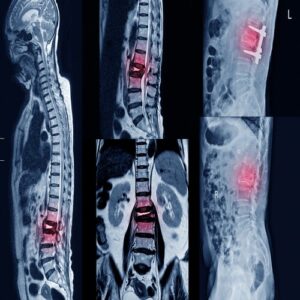SCI (Spinal Cord Injury): Causes, Effects, Rehab and Incidence of Veterans

Introduction:
Spinal cord injuries (SCIs) impair the brain’s ability to send messages to the rest of the body. These injuries can result in paralysis, loss of feeling, chronic pain, and other serious medical problems below the site of the injury.
Spinal cord injuries (SCIs) are life-altering events that can have profound effects on an individual’s physical, emotional, and social well-being. This blog aims to shed light on the causes, effects, and rehabilitation strategies associated with spinal cord injuries. Whether you’re seeking information for yourself or someone you care about, understanding the complexities of SCIs is crucial for navigating the challenges they bring.
Incidence in Veterans:
SCIs are estimated to affect between 249,000 and 363,000 Americans, with about 17,730 new injuries occurring each year. About 80% of people with new injuries are males, and roughly 42,000 people with SCIs are Veterans . Nearly half of all SCIs occur in people between the ages of 16 and 30, so many patients live with the effects of these injuries for decades.
Causes of Spinal Cord Injuries:
SCIs result from damage to the spinal cord or its surrounding vertebrae. The leading causes include traumatic events such as motor vehicle accidents, falls, sports-related injuries, and acts of violence. Non-traumatic causes like diseases (e.g., polio, multiple sclerosis), tumors, and degenerative conditions can also contribute to SCIs.
Effects of Spinal Cord Injuries:
The effects of SCIs depend on the severity and location of the injury along the spinal cord. Injuries are often classified as complete or incomplete. Complete injuries result in the loss of all sensory and motor function below the injury site, while incomplete injuries retain some degree of function.
Physical Implications:
1. Paraplegia: Paralysis of the lower body, including legs.
2. Quadriplegia/Tetraplegia: Paralysis affecting all four limbs and, in severe cases, the torso.
3. Loss of Sensation: Reduced or absent ability to feel touch, temperature, or pain below the injury site.
4. Motor Function Impairment: Difficulty or inability to control muscles, leading to challenges with movement.
Secondary Complications:
1. Muscle Atrophy: Muscles below the injury site can weaken due to lack of use.
2. Spasticity: Involuntary muscle contractions that can lead to stiffness and discomfort.
3. Respiratory Issues: Damage to the spinal cord can affect the muscles involved in breathing.
4. Pressure Sores: Immobility can lead to skin breakdown, potentially causing infections.
Symptoms:
The symptoms of TOS can vary widely depending on the type and severity of the condition. Common symptoms include:
• Numbness or tingling in the fingers and hand.
• Weakness or loss of muscle control in the affected arm.
• Pain or discomfort in the neck, shoulder, and arm.
• Swelling or discoloration in the arm due to vascular compression.
• Cold sensitivity in the affected hand.
Emotional and Social Effects:
SCIs can have profound psychological effects, including depression, anxiety, and a sense of loss. Adjusting to a new way of life, potential dependency on others, and altered social dynamics can be emotionally challenging.
Rehabilitation and Treatment:
1. Medical Care: Immediate medical attention is essential to minimize damage after an injury.
2. Physical Therapy: Rehabilitation programs focus on strengthening muscles, improving mobility, and preventing complications.
3. Occupational Therapy: Aims to enhance daily living skills and promote independence.
4. Assistive Devices: Wheelchairs, braces, and other devices aid mobility and function.
5. Psychological Support: Mental health professionals help individuals cope with emotional challenges.
6. Adaptive Sports and Recreation: Engaging in physical activities can improve physical and mental well-being.
Promising Research: Advancements in stem cell therapy, periprosthetic, and nerve regeneration techniques offer hope for improved recovery and function for individuals with SCIs.
At Divine Healing Chiropractic in Santa Ana ,we proudly here to serve the Veterans with different kind of Muscluscltal condition such as , Neck pain , Headaches , Back pain , Sciatica , Disc Herniation , Spine Arthritis , Fatigue , Joint injury …etc.
We using very cool technology such as PEMF , Shockwave Therapy , Laser Therapy ,Electro muscle stimulation , Myofacial release , Chiropractic Spinal Manipulation to relief the symptoms and pain in Veterans and help them living the happier ,healthier more productive life.
Dr. Mousavi proudly is a part of the TriWest insurance network ,so our office ready to serve the Veterans in our community .
Conclusion:
Spinal cord injuries are complex and life-changing, affecting not only the injured individual’s physical abilities but also their emotional well-being and social interactions. With advancements in medical care and rehabilitation techniques, there is hope for enhanced quality of life and increased independence for those living with SCIs.
Is pain and discomfort slowing you down? Are you not feeling well and can’t get to the root cause? We can help.
Call Today: 657-286-4620
Divine Healing Chiropractic
2010 E First Street
Suite #270
Santa Ana, CA 92705
| Monday | 10 AM - 6 PM |
| Tuesday | 10 AM - 6 PM |
| Wednesday | 10 AM - 6 PM |
| Thursday | 10 AM - 6 PM |
| Friday | 10 AM - 6 PM |
| Saturday | Closed |
| Sunday | Closed |

